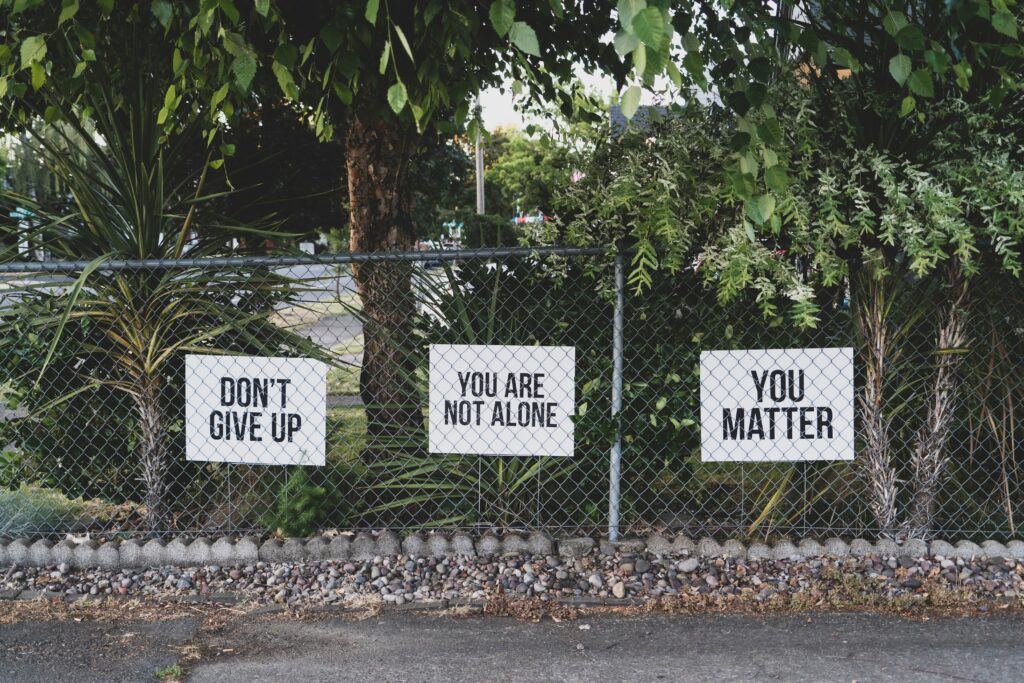mental health
“The Power of Emotional Validation: Benefits for Mental Health and Relationships”

Photo by Dan Meyers on Unsplash
Emotional validation refers to acknowledging and accepting someone’s emotions as valid and understandable.
It is a powerful tool that can benefit both the individual expressing their emotions and the person providing validation. Let’s explore some of the benefits of emotional validation.
- Builds Trust and Connection
When someone feels emotionally validated, they are more likely to trust and feel connected to the person providing validation. Validation sends the message that their feelings matter and that they are understood. This can create a sense of psychological safety, leading to stronger relationships and deeper connections.
- Reduces Stress and Anxiety
When we feel validated, our stress and anxiety levels decrease. This is because emotional validation helps us feel heard and understood, significantly relieving us when we struggle with difficult emotions. When we feel validated, we are better able to regulate our emotions and cope with stressors in a healthy way.
- Promotes Emotional Awareness and Acceptance
Emotional validation encourages us to acknowledge and accept our emotions, even if they are uncomfortable or difficult. This can be a crucial step in emotional regulation and growth. By validating our emotions, we can learn to recognize and accept them rather than trying to suppress or ignore them. This leads to greater emotional awareness and a more authentic sense of self.
- Encourages Communication and Problem Solving
Feeling validated makes us more likely to communicate openly and honestly with others. This can lead to more effective problem-solving and conflict resolution. By validating each other’s emotions, we can work together to find solutions that work for everyone rather than becoming defensive or argumentative.
- Improves Mental Health and Well-being
Emotional validation can have significant benefits for our mental health and well-being. By acknowledging and accepting our emotions, we can reduce the negative impact of stress and anxiety on our mental health. Additionally, by building connections with others through emotional validation, we can improve our social support networks and increase our resilience in difficult times.
Share this:
Andrew Huberman’s Five Core Points for Optimal Health and Well-Being

Photo by Brett Jordan on Unsplash
Andrew Huberman is a neuroscientist and professor at Stanford University who has been studying the science of well-being and optimal brain function for many years.
He has identified five core points for health that are essential for achieving and maintaining optimal physical and mental health.
I think all five are especially important in Multifamily Property management!
These points are sleep, nutrients, movement, light, and social connection.
Sleep: According to Huberman, adequate sleep is crucial for overall health and well-being.
Sleep is essential for proper brain and body functioning, and lack of sleep can lead to various health problems, including depression, anxiety, and chronic disease.
Huberman recommends sleeping 7-8 hours each night to promote optimal health.
Nutrients: Huberman emphasizes the importance of a healthy diet that provides the body with the necessary nutrients for optimal health.
He recommends a diet rich in fruits, vegetables, lean protein, and healthy fats that avoid processed and sugary foods.
Movement: Huberman stresses the importance of regular physical activity for overall health and well-being.
Exercise can help reduce stress, improve mood, increase energy levels, and prevent chronic disease.
Huberman recommends finding an exercise routine that works for you and making it a regular part of your daily routine.
Light: Huberman emphasizes the importance of exposure to natural light for optimal health.
Natural light exposure can help regulate the body’s internal clock, improve mood, and promote better sleep.
Huberman recommends getting outside regularly and exposing yourself to natural light during the day.
Social Connection: According to Huberman, social connection is essential for overall health and well-being.
Social isolation and loneliness can lead to various health problems, including depression, anxiety, and chronic disease.
Huberman recommends making time for social activities and building meaningful connections with others.
Source: Huberman, A. (2021). Andrew Huberman’s Five Core Points for Health. Stanford University. https://www.hubermanlab.com/five-core-points-for-health
Share this:
Mental Health vs Happiness: Understanding the Difference

Photo by Dan Meyers on Unsplash
The world seems to value happiness above all else, sometimes using it to measure mental health.
But mental health is not a measure of happiness.
While happiness can contribute to good mental health, it is not the sole measure of it.
Understanding the difference between mental health and happiness is crucial for our well-being.
What is Mental Health?
Mental health is a broad term that encompasses our emotional, psychological, and social well-being.
It affects how we think, feel, and act daily.
Good mental health is not just about the absence of mental illness but also about the ability to cope with life’s challenges.
Mental health is a complex and ongoing process that requires self-care and attention.
It is not a one-time achievement but a lifelong journey requiring effort and practice.
Mental health involves building resilience, managing stress, and maintaining healthy relationships.
What is Happiness?
Happiness, on the other hand, is a positive emotion that we feel when we experience pleasure, contentment, or joy.
It is a fleeting emotion that comes and goes, depending on our circumstances.
Happiness can contribute to good mental health, but it is not the sole measure of it.
The problem with pursuing happiness as the sole measure of well-being is that it can lead to unrealistic expectations and feelings of failure or inadequacy.
Life is not always happy, and it is unrealistic to expect it to be.
Instead, it is important to focus on building resilience and coping skills that will help us navigate the challenges and difficulties that come our way.
Mental Health vs Happiness
Mental health and happiness are often used interchangeably, but they are different.
Mental health is about overall well-being, whereas happiness is a positive emotion that comes and goes.
Good mental health involves building resilience and coping skills, while happiness is a byproduct of positive experiences.
It is essential to prioritize both mental health and happiness in our lives.
Pursuing happiness at the expense of our mental health can lead to burnout, stress, and even mental illness.
Conversely, neglecting our happiness can lead to feelings of boredom, frustration, and apathy.
The Importance of Self-Care
Self-care is an essential part of maintaining good mental health and happiness.
Self-care involves taking time to do things that we enjoy and nourish our souls.
It can be as simple as walking, practicing meditation, or spending time with loved ones.
Self-care also involves taking care of our physical health.
Exercise, healthy eating, and adequate sleep are all essential for good mental health and well-being.
Neglecting our physical health can lead to feelings of lethargy, apathy, and poor mental health.
The Importance of Seeking Help
If you are struggling with mental illness or poor mental health, it is important to seek help.
Mental illness is a real illness that requires treatment and support.
Seeking help is a sign of strength, not weakness.
Many resources are available for those struggling with mental illness or poor mental health.
These include therapy, support groups, and medication.
Finding a treatment plan that works for you and prioritizing your mental health and well-being is important.
The Importance of Mindfulness
Practicing mindfulness is another essential component of good mental health and happiness.
Mindfulness involves being present in the moment and paying attention to your thoughts and feelings without judgment.
It can help reduce stress, improve sleep, and increase feelings of well-being.
There are many ways to practice mindfulness, such as meditation, yoga, or taking a few deep breaths.
Incorporating mindfulness into your daily routine can significantly impact your mental health and happiness.

